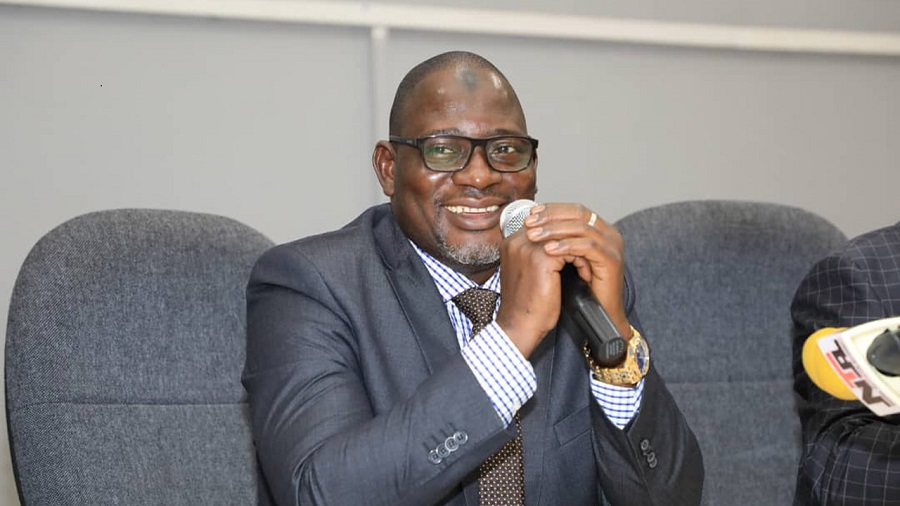The Nigerian Extractive Industries Transparency Initiative (NEITI), in its quarterly review, has announced that the Federation Accounts Allocation Committee (FAAC), shared the sum of N1.945 trillion to the Federal Government (FG), State Governments, Local Governments, and others in the first quarter of 2020.
This is the highest first quarter (Q1) disbursement since 2014. The disbursements since 2015 were N1.648 trillion in Q1 2015, N1.132 trillion in Q1 2016, N1.411 trillion in Q1 2017, N1.938 trillion in Q1 2018, and N1.929 in Q1 2019.
This was disclosed in a press statement that was signed by NEITI’s Director, Communications and Advocacy, Dr. Orji Ogbonnaya Orji, on Monday, May 11.
The press statement, which was seen by Nairametrics, also stated that lower remittances have been projected for the rest of 2020 due to the impact of the coronavirus pandemic. The 3 tiers of government are projected to struggle with revenues and so will need innovative approaches to weather the approaching storm.
A breakdown of the disbursements shows that N791.4 billion was allocated to the Federal Government, N669 billion went to the State Governments and about N395 billion was allocated to the 774 Local Governments. The balance went to the North East Development Commission, the Excess Crude Account, Federal Inland Revenue Service (FIRS), Nigerian Customs Service (NCS), and the Department of Petroleum Resources (DPR).
(READ MORE: Nestle releases Q1 2020 result, administrative and distribution expenses drive down profits)
The review examined FAAC’s disbursements in Q1 2020 and made projections on the possible impacts of Covid-19 on government revenue

It noted that, “While total disbursements in Q1 2020 were slightly higher than Q1 2019 and Q1 2018, disbursements to the 3 tiers of government in Q1 2020 were slightly lower than Q1 2019 and Q1 2018. This is due to transfers to other accounts in Q1 2020 which were not done in either Q1 2019 or Q1 2018. These include allocations to the North East Development Commission and transfer to Excess Crude Account.”
The report noted that with the exception of 2018, the general trend since 2015 has been that total disbursements usually decline in the second quarter, before increasing in the third quarter. With the COVID-19 pandemic and its impact on the economy, it is expected that the disbursement will decline in the second quarter.
For Q1 disbursement, Osun state has the lowest allocation of N6.44 Billion, whereas Delta state has the highest allocation of N52.03 billion. This represents a difference of 708%.
(READ MORE: GTB to go ahead with AGM, attendance by proxy)
According to the report, 31 states received less than N20 billion net FAAC disbursement in Q1 2020, meaning that only 5 states received more than N20 billion. The states are Lagos (N26.23 billion), Bayelsa (N35.14 billion), Rivers (N39.99 billion), Akwa Ibom (N40.61 billion), and Delta (N52.01 billion) respectively.
On the prospects of FAAC disbursements for the rest of the year due to the impact of COVID-19, the review remarked, “In light of the double whammy of declining oil demand and oil prices as a result of COVID-19 pandemic, government revenue would likely continue to fall in subsequent months. As global crude oil prices plummet in the midst of the global oil supply glut arising from lockdown of activities in many countries of the world, all tiers of government will struggle to fund their 2020 budgets.”
The report called for innovative and concerted efforts on the part of governments at all levels to mitigate the impact of COVID-19, not just on revenues but also on the economy as a whole.
NEITI welcomed the measures taken by FG in this direction. These include $150 million from the stabilization fund to supplement FAAC disbursements, initiating modalities for states to benefit from debt and interest moratorium, the review of this year’s budget to reflect current realities, and $3.4 billion emergency facility from IMF.
While NEITI, applauded the proactive interventions by the FG, it urged State Governments to emulate the Federal Government’s initiatives by making adjustments to their revenue and expenditure plans.

![FAAC disburses N190 billion to 36 States in August as allocation drops [Full list], FG, States, LGs’ to share N635.82 for November, FAAC disburses N1.945 trillion in Q1 2020, highest 1st quarter allocation since 2014](https://nairametrics.com/wp-content/uploads/2019/09/FAAC-1.jpg)




















